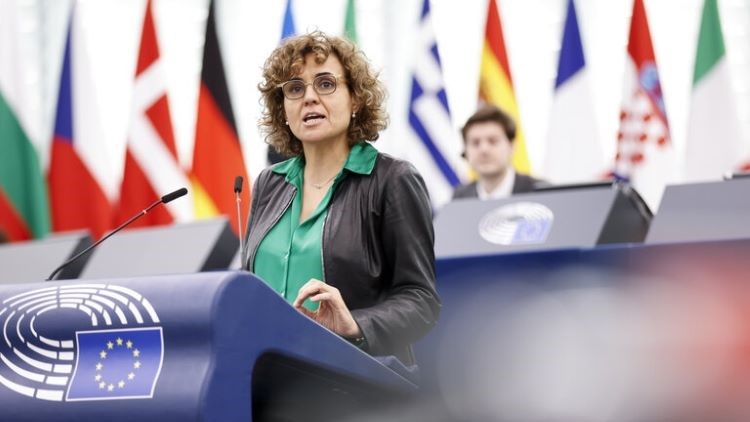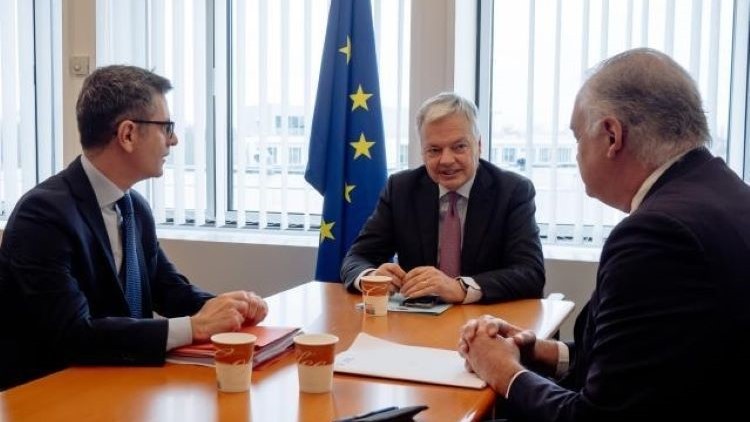Ane Barcos-Aquí Europa
Yesterday, the plenary session of the European Parliament in Strasbourg held a debate on accusations of corruption and misappropriation of EU funds during the pandemic in Spain, the so-called “Koldo case”. The PP attacked the President of the Government, Pedro Sánchez, accusing him of leading a government marked by “lies, betrayal and corruption”, while the socialists demanded the resignation of the president of the Community of Madrid, Isabel Díaz Ayuso.
At the request of the Popular Party, the European Parliament debated on Wednesday the plot of the commissions related to the purchase of masks during the pandemic in Spain. The discussion focused on the possible fraud of European funds through the collection of said commissions.
«In Spanish politics, situations occur daily that in the rest of Europe would be absolutely incomprehensible and inadmissible. Unfortunately, the accumulation of socialist scandals has become an everyday occurrence in Spain,” said popular MEP Dolors Montserrat forcefully when opening the debate on the Koldo case.
The popular ones described the mask scandal as a “national shame” and accused the PSOE of “turning on the socialist fan to spread garbage and divert attention”, after yesterday’s intervention by the President of the Government in the Government control session in Congress, where he demanded from the leader of the PP, Alberto Núñez Feijóo, the resignation of Isabel Díaz Ayuso due to the alleged irregularities that have recently affected his partner.
This request from President Sánchez was joined by the socialist representation in the European Parliament, which criticized the lack of action against irregularities by the PP and demanded the resignation of Ayuso, alleging that Feijóo should do the same “for reasons of credibility.”
“In the face of corruption, socialists make forceful decisions and carry out political responsibilities. And in the PP, they cut off the head of anyone who denounces corruption. That’s the big difference. If you want credibility and bring these debates, demand the resignation of Mrs. Ayuso,” said MEP Nicolás González.
Podemos: the PP “did not choose a good day to debate corruption”
“No seats to protect yourself, no judges at your service, no pardons from cronies, independent organizations and mechanisms that control public procurement and the use of European funds, investigations, trials and demanding laws that are forcefully applied and do yourself a favor get rid of their gulfs, their chorizos and their looters,” Podemos MEP Eugenia Rodríguez said during the debate.
The Amnesty Law sneaks into the debate on the Koldo case
For his part, Jorge Buxadé, Vox MEP, stated that “the worst socialist corruption is not that of money, that is judged, condemned and that’s it. Worse corruption is that which is produced by the decomposition of a living body that is the nation.”
Buxadé questioned both the Popular Party and the socialist government, highlighting the importance of honesty and integrity in politics and highlighting his party, Vox, as an example of these virtues in contrast to the corruption that, according to him, prevails in other countries. political forces. He also charged against Brussels, criticizing the passivity of the Commission in the face of these problems, pointing out that both cases of corruption in Spain and those related to the distribution of vaccines have been ignored or silenced.
For its part, Ciudadanos highlighted that these contracts were paid for with European funds, which challenges the entire European Union, requesting an exhaustive investigation so that “those who have to fall fall.”
One of his MEPs, Adrián Vázquez, pulled out a mask, stating that what used to be a symbol of protection is becoming a symbol of corruption. “I don’t know if we will ever know who COVID patient zero was. What is certain is that we will know that patient zero of corruption is the Spanish Socialist Workers Party,” added Jordi Cañas.
Amid accusations and criticism among Spanish MEPs, the Greens group lamented the politicization of the debate and criticized its focus on national issues rather than European issues. In addition, he emphasized the need for strategic planning for the use of funds and the importance of preventing corruption.







